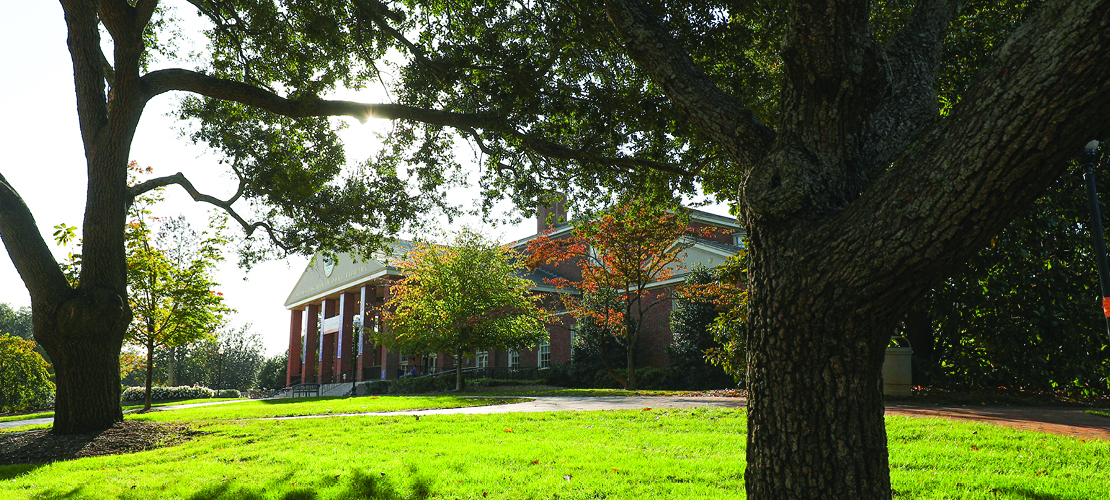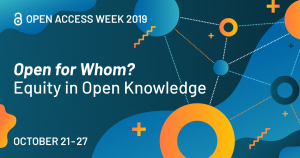What is open access?
Open access refers to scholarly journals, textbooks, and data that are not hidden behind a paywall blocking students and researchers from accessing them for academic and research purposes. The purpose of Open Access Week is to raise awareness of the importance of having free access to information and to encourage libraries, schools, and other organizations to support and work to provide for greater open access to information and data.
What is the meaning of “Open for Whom?”
“As the transition to a system for sharing knowledge that is open by default accelerates, the question “open for whom?” is essential—both to consider and to act upon. Whose interests are being prioritized in the actions we take and in the platforms that we support? Whose voices are excluded? Are underrepresented groups included as full partners from the beginning? Are we supporting not only open access but also equitable participation in research communication? These questions will determine the extent to which emerging open systems for research will address inequities in the current system or replicate and reinforce them.”(continue reading more about this year’s Open Access Week theme here). [1]
Why is open access important?
Teaching the next generation requires high-quality textbooks and access to source materials and journals. Conducting novel research also requires being able to read and build upon the research of other academics and scientists. Ever rising textbook prices and exorbitant journal subscription fees make fulfilling these tasks more difficult as library, university, and student budgets are strained. The philosophy behind open access materials and information is that all of us succeed if we can read the articles and books necessary for our scholarly work.
What are the benefits of open access?
The most obvious benefit to open access is that everyone saves money, but open access can also have a huge impact on the economy and our technological advancement. Universities and libraries can allocate more funds toward other projects and personnel. Students can spend the money they would have spent on textbooks for other purposes or reduce the amount of debt they would have accrued from those textbook purchases. Barriers to data and research may keep humanity from our next big discovery so we must remove the paywalls if we want to advance as a species. Finally, open access may increase global economic output by $3.2 trillion. [2]
[1]Posted by Nick Shockey on June 4, 2019, at 11:30am and Blog, View. “Theme of 2019 International Open Access Week to be “Open for Whom? Equity in Open Knowledge”.”, accessed Oct 18, 2019, http://www.openaccessweek.org/profiles/blogs/theme-of-2019-international-open-access-week-to-be-open-for-whom-.
[2] “Open Data.” SPARC., accessed Oct 17, 2019, https://sparcopen.org/open-data/.



